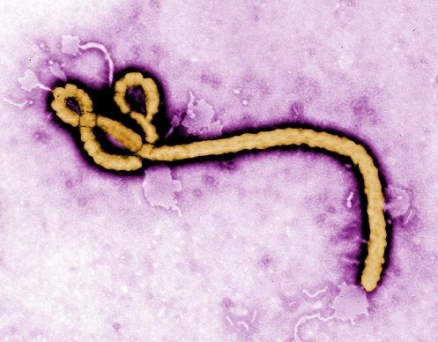Considering 200 Years of Infectious Diseases
NIAID Scientists Consider
200 Years of Infectious Diseases
Unpredictable, ever-changing and with potentially far-reaching effects on the fates of nations, infectious diseases are compelling actors in the drama of human history, note scientists from the National Institute of Allergy and Infectious Diseases (NIAID), part of the National Institutes of Health. In an essay marking 200 years of publication of the New England Journal of Medicine, NIAID Director Anthony S. Fauci, M.D., and coauthor David M. Morens, M.D., trace key advances in understanding and combatting infectious diseases and outline ways in which thecontest between microbes and man might play out in decades to come.
The authors look back to the 1799 death, likely from bacterial epiglottitis, of President George Washington and note that “no one alive then could have imagined the astonishing breakthroughs that lay ahead.” Among these was the idea that identifiable microbes lead to specific illnesses, an insight that opened the way to more accurate diagnoses, a host of antibacterial and antiviral drugs and a tool, vaccination, to prevent many infections altogether. Combined, these interventions have saved hundreds of millions of lives and lessened the burden of human suffering, the authors note.
Laudable successes—such as the elimination of smallpox—are, however, balanced against the inevitable emergence of newer pathogens, such as HIV, that can sweep the globe and devastate societies, observe the authors. This tug-of-war between constantly evolving microbes and the human ingenuity required to address newly emerging illnesses makes for the perpetual challenge of infectious diseases. Efforts to address this challenge, they write, “are driven by the necessity of expecting the unexpected and being prepared to respond when the unexpected occurs.”
Editor's Notes
- ARTICLE:A.S. Fauci and D.M. Morens. The perpetual challenge of infectious diseases. New England Journal of Medicine DOI: 10.1056/NEJMra1108296 (2012).
- WHO:Anthony S. Fauci, M.D., Director, NIAID, and David M. Morens, M.D., Senior Advisor to the NIAID Director, are available to comment on their article.
- CONTACT:To schedule interviews, please contact Anne A. Oplinger at (301) 402-1663 or niaidnews@niaid.nih.gov niaidnews@niaid.nih.gov.
- SEE THE REVIEW'S Interactive Timeline.
